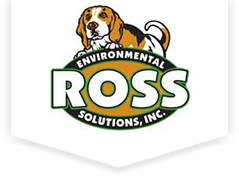Where Do Skunks Live in the Winter in Hammonton, NJ? How to Get Rid of Nuisance Skunk Wildlife
We all think the same thing when we see a skunk cross our path – the stink, right? The striped skunk is the only native skunk found in New Jersey. These skunks are named for the two broad white stripes that run down their back. These stripes start as a single stripe at the nape that splits into two on their torso. Striped skunks are about the size of a house cat and the males are larger than the females. They are typically found in woodlands, forests, wooded ravines and grassy plains. As humans continue to encroach on these areas, skunks have become more common in suburban areas. Just like us, they are omnivores. They will eat plants and other animals with 80% of their diet consisting of meat like frogs, small rodents, bugs and bird eggs. They also like to eat grains, berries, nuts and corn. When skunks find themselves in human-inhabited areas they will feed on our trash.
When Do Skunks Come Out of Their Dens?
Striped skunks are crepuscular. This means they are active mostly at dawn and dusk, but they can occasionally be seen at night which means they can be nocturnal too. When winter arrives they do not hibernate, but rather go into a semi-active state. Striped skunks do not live for very long and usually don’t live longer than a year as they are prone to infectious disease. If they get past the year mark they can live for up to seven years.
How Many Times Can a Skunk Spray?
The best way they defend themselves is their noxious spray. This spray is known as musk and comes from well-developed scent glands in either side of their anus. They can spray up to 10 feet and contact with the musk can cause nausea, pain and even temporary blindness. Skunks car spray up to six times in a row but after a full discharge, it can take them up to 10 days to resupply. They don’t have many predators because animals learn to stay away from the bold black and white striped animal if they’ve had an experience with one in the past. You might be surprised to know that they rarely “spray” and only do it when they feel threatened or are startled. They almost always give a few warning signs before they do and will stamp their feet or rise up on their hind legs. They will only spray as a last resort.
What to Do if You See a Skunk
Skunks can become pests to property, pets and families. Because they get quite comfortable with humans, they can become a nuisance. When you see a skunk it’s important not to panic. Remember, the skunk don’t want to spray you. Chances are the skunk has wandered into your yard looking for food, water or shelter. They may just leave if your home is well sealed and you give it time and space. On the other hand, they may try to nest under your home, rummage through your trash or dig up your turf looking for grubs; all of which can be quite a nuisance.
Nuisance Wildlife Control & Removal
If you continue to have these little critters coming into your yard, rummaging through your trash and trying to make a den under your home or other structures; then contact a pest control company that specializes in wildlife control and removal. Ross Environmental Solutions has the training to take care of all kinds of wildlife and will do so in a humane way. Contact us for all your pest control needs!


